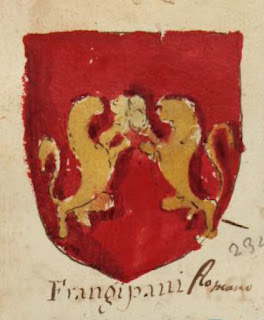According to legend, Siena was founded by Senio and Ascanio, who were sons of Remus (who founded Rome with his brother Romulus). More verifiably, Romans established a military outpost in 30CE.
After the fall of Rome and prior to the Republic of Siena, for many years the city and area was run by the bishops. During a territorial dispute with Arezzo, the bishop asked for help from the nobility, who demanded a greater say in administering the city in exchange. This led eventually to ending the control by the bishops and the founding in 1125 by a consular government.Siena prospered under the Republic, becoming a center of money-lending and the wool trade. It expanded its influence over Southern Tuscany. In 1286 the government evolved to the Nove, "The Nine," chosen from the Noveschi political party of wealthy merchants. Under the Nove Siena rose to new heights of power, producing the Cathedral of Siena and improving the city walls.
Under the Noveschi, Siena's political and economic power grew in southern Tuscany until it became a rival to Florence. Of particular issue was the fact Siena was predominantly Ghibelline versus the Florentine Guelphs. This post explains the difference; Dante mentions their conflict in his Commedia. With help from Manfred of Sicily, Siena defeated Florence in the 1260 Battle of Montaperti. Some 15,000 Florentines were killed in the battle, and Siena entered a Golden Age until...
...the Black Death. Siena was devastated, In 1355, just as they might have been recovering from the plague, Holy Roman Emperor Charles IV of Luxembourg entered Siena and the population decided to throw out the Nove and the power of the Noveschi, replacing it with the Dodici, "The Twelve." They were presently replaced by the Quindici, "The Fifteen" in 1385, then the Dieci (Ten, in 1386), then the Undici, (Eleven, 1388-1398), followed by the "Twelve Priors" from 1398-99. Ultimately, all these experiments in governing by councils ended when the fear of Florentine expansion motivated the city to turn to a single strong ruler, Gian Galeazzo Visconti, the first Duke of Milan.
Tomorrow I'll tell you about the return of the Nove, the decline of the Republic, and (my favorite), the "mount of piety," which still exists.






